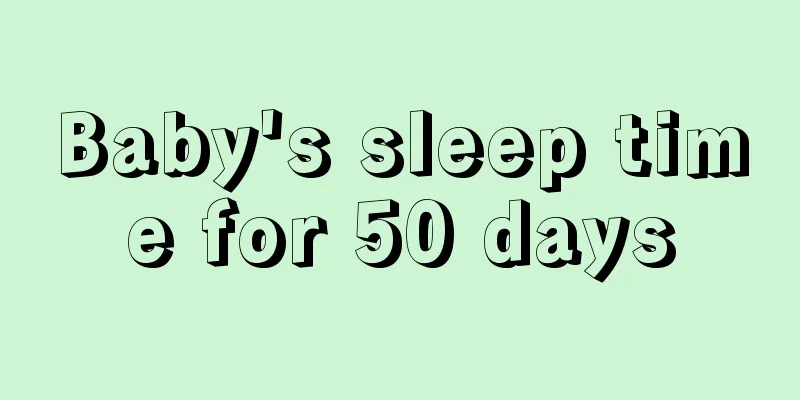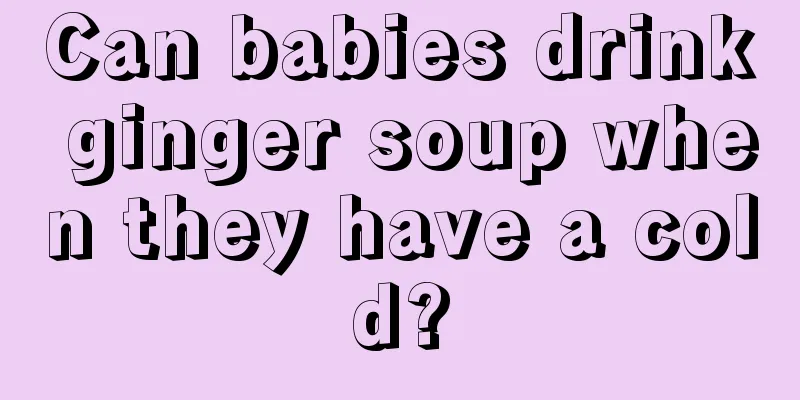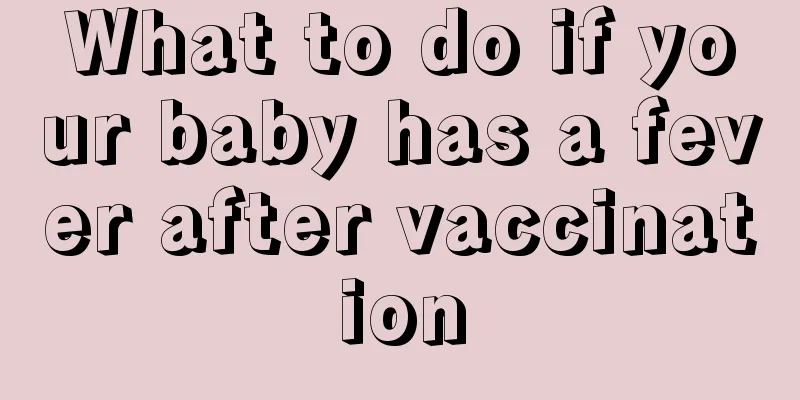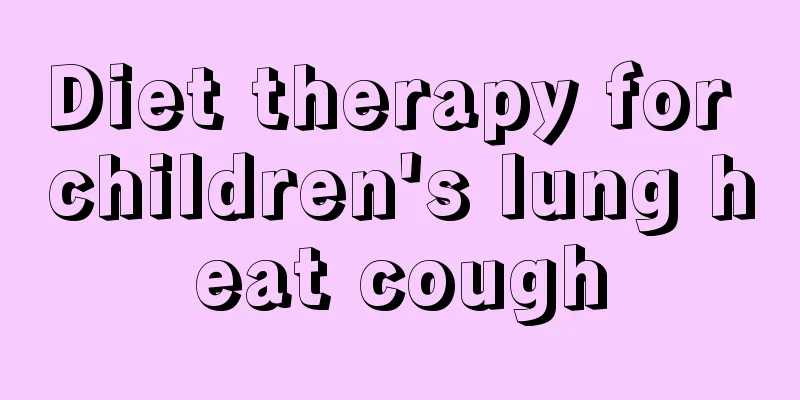One-year-old baby's teeth are corroded and have pits
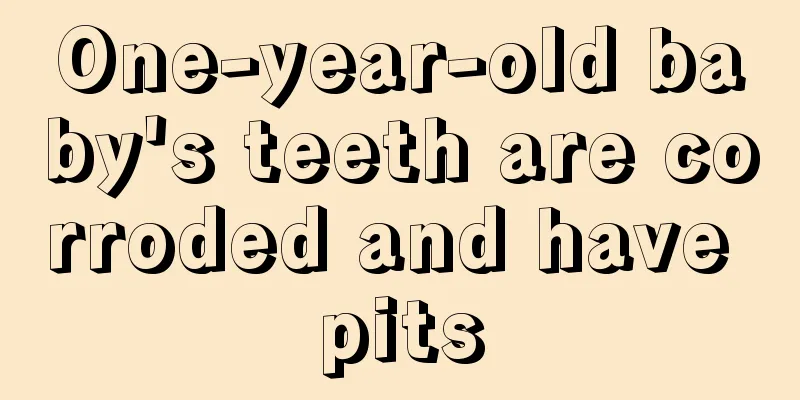
|
Babies are of great concern to parents, because any problem that occurs to babies will have a certain impact on their bodies, so parents pay attention to their babies all the time. Many people know that babies will have some dental problems in their early years, but sometimes some people will find some corroded pits on their teeth. When this happens, it has a great impact on the baby's tooth development. So what are the reasons for the corrosion pits on the baby's teeth? Deciduous teeth are very important. They not only have functions such as chewing, aesthetics, and pronunciation, but also have an impact on the permanent teeth that will erupt in the future. Keeping the deciduous teeth normal until they are replaced will affect the development and arrangement of permanent teeth. The early loss of deciduous teeth can cause many adverse effects such as the misalignment of permanent teeth. He's just over a year old and his teeth are already corroded? The speed is really too fast. The most common dental caries in children is baby bottle caries on the maxillary front teeth, which is caused by poor feeding habits. If it develops rapidly, it can lead to premature loss of deciduous teeth. If the tooth has already been lost, there may be no good way to replace it. All we can do is pay attention to maintaining the child's oral hygiene, and slowly cultivate good feeding and brushing habits to prevent other teeth from getting decayed again. Attached is some relevant information about baby bottle tooth decay for you to take a look. It is best to take your child to the hospital for a check-up and consult a doctor. How does baby bottle caries occur? Baby bottle caries refers to a type of caries that occurs in infants and young children who have grown teeth but are still drinking milk from bottles. In daily life, we often see some babies whose baby teeth have not yet come out, but the roots of their grown teeth have become black, pointed and rotten. This phenomenon is mostly caused by baby bottle caries. The occurrence of baby bottle caries is often caused by parents not mastering the correct feeding method. Infants who are artificially fed usually use bottles to feed milk or water. When feeding, the nipple should be placed in the baby's mouth right in the middle of the upper and lower front teeth, with the nipple against the palate. When sucking milk, almost all the front teeth can be immersed in milk or sugar water. In this way, while the baby is sucking milk to get nutrition, the bacteria in the mouth also take advantage of the favorable conditions to grow and multiply. If feeding is irregular, the time the teeth are soaked in milk will be indefinitely prolonged; or if you try to save trouble by coaxing the baby to sleep with the bottle in his mouth; or if the baby falls asleep quickly after feeding, it is impossible to clean his mouth, causing bacteria that corrode the teeth to multiply in the mouth. Over time, the teeth will decalcify, the crowns will peel off, and residual roots or tooth residues will form. The premature destruction of deciduous teeth not only affects the appearance, but more importantly, the chewing function cannot be fully exerted, affecting the normal development of the head and face. It is obvious that baby bottle caries can cause great harm to the body. Since baby bottle tooth decay is caused by improper feeding methods, the most effective prevention method is to implement scientific feeding and good oral hygiene care. First of all, we must scientifically master the feeding time and frequency. Each feeding time is generally limited to about 15 minutes. But don't let your baby fall asleep with a bottle in his mouth just to save trouble. After feeding, you should pay attention to maintaining oral hygiene and feed boiled water in appropriate amounts to clean the mouth. After feeding, parents can also use sterilized gauze dipped in clean water to wipe the baby's teeth. For older babies, switch to using a spoon to feed water and milk as soon as possible. Gradually train and cultivate your baby to rinse his mouth after meals and transition to brushing his teeth by himself |
<<: What is the reason for children's white teeth
>>: How long does it take for children's loose teeth to fall out?
Recommend
What are the symptoms of severe pneumonia in children?
Because infants and young children are relatively...
Why does my baby have a gurgling throat when he has a fever?
Babies are very susceptible to illness due to the...
If your baby has vertical lines on his nails, be careful because these are the signs
A normal baby's nails should be pink and tend...
At what age is it better for children to sleep in separate beds?
Babies sleep in the same bed with their parents f...
How to educate a naughty and disobedient child?
Young children will more or less show naughty beh...
Symptoms of allergic rhinitis in children
Allergic rhinitis in children is an allergic dise...
Newborn baby farts loudly
Farting is a very common symptom in daily life. I...
Symptoms of cough variant asthma in children
Asthma is a very common disease nowadays. There a...
Is it normal for a two month old baby to stick out his tongue?
It is generally considered normal for babies to s...
What is the cause of the child's low-grade fever for several days?
In the pediatric outpatient clinic, the most comm...
What should I do if my child has a nosebleed?
Children's immunity is not as good as that of...
Several physical methods for reducing fever in children
Children's bodies are particularly fragile, s...
Causes of nasal congestion and phlegm in newborns
As we all know, nasal congestion and phlegm are c...
What will happen if the baby drinks cold milk powder?
When a baby is born, he needs breastfeeding becau...
What are the symptoms of hypothyroidism in infants?
Many parents find that their babies are different...
